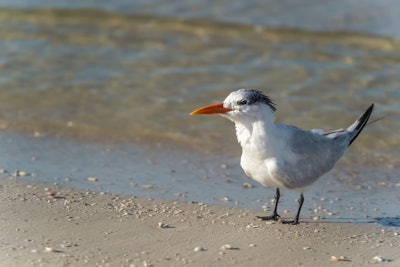
Brazil remains on alert for highly pathogenic avian influenza (HPAI) as six new cases have been reported in wild birds in the country.
According to the most recent report from the World Organisation for Animal Health (WOAH) each of the new cases have involved royal terns, but in one of those cases, a Cabot’s tern was also affected by HPAI.
The dates of which each of the new cases was confirmed ranged from July 24 to July 26.
The case that involved the most birds was confirmed in San Francisco do Sul, in which 24 royal terns were affected and one Cabot’s tern. All but three of those birds were found dead, while the remaining three were euthanized.
In Santos, two royal terns were affected by HPAI, while Joinville, Guaratuba, Penha and Navegantes each had one royal tern struck by HPAI.
To date, Brazil, which is the world’s largest poultry exporter, has not had any commercial poultry flocks affected by HPAI, although there have been 160 cases of HPAI in Brazilian backyard poultry, leading to the loss of 277 birds.
Among the wild bird species to have been lost to HPAI in Brazil are great black hawk, roadside hawk, grey-headed gull, black-necked swan, tropical screech owl, common tern, neotropic cormorant, South American tern, brown booby, brown-hooded gull, magnificent frigatebird and crested caracara.
New case confirmed in Ecuador backyard poultry
WOAH also issued a new report on the HPAI situation in Ecuador. A new case was confirmed in a backyard poultry flock in Aves Traspatio on July 24. Among the birds in the flock were ducks and turkeys.
Twelve birds were susceptible, and of those 12, nine were found dead. The remaining three were euthanized and disposed of.
Colombia has backyard poultry, pelican hit by HPAI
In Colombia, WOAH reported, a case was confirmed in El Manantial in a backyard flock. Also on the premises was a wild brown pelican, which had died and tested positive for HPAI. None of the 32 susceptible domestic birds tested positive for the disease, but they were euthanized and disposed of.















